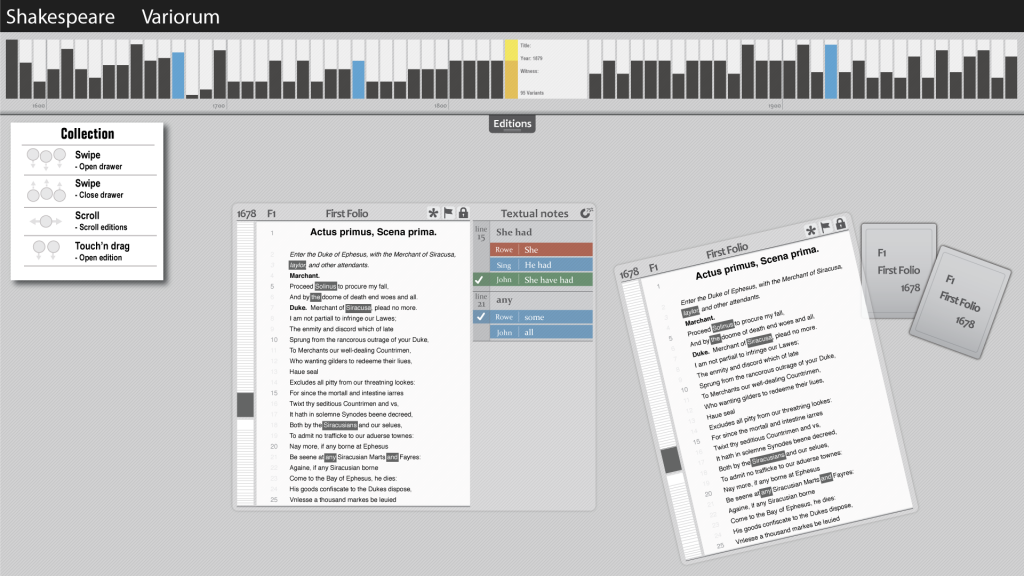INKE ID members attended the annual DH conference, held this year in Lincoln, NE (USA), on July 16-19, 2013. Members presented a panel entitled “The Design of New Knowledge Environments,” speaking about year four projects of the ID team. Stan Ruecker introduced the INKE project and the design of new knowledge environment, followed by papers present by ID group members.
Dynamic Table of Contexts
Authors: Jennifer Windsor (speaker), Jennifer Windsor, Susan Brown, Brent Nelson, Milena Radzikowska, Stéfan Sinclair, and the INKE Research Group
Reading Skins: Voyant and Tool Aggregation
Authors: Geoffrey Rockwell (speaker), Stéfan Sinclair, and the INKE Research Group
The Tablet as a New Medium for Scholarly Editions
Authors: Atefeh Mohseni, Daniel Sondheim, Milena Radzikowska (speaker), Luciano Frizzera, Geoffrey Rockwell, Stan Ruecker, and the INKE Research Group
Multi-Touch Surface as a Social Reading Environment for Variorum Edition
Authors: Luciano Frizzera (speaker), Sarah Vela, Mihaela Ilovan, Piotr Michura, Daniel Sondheim, Geoffrey Rockwell, Stan Ruecker, and the INKE Research Group
Video demo:
Managing the Editorial Process: A Study of Workflow
Authors: Teresa Dobson, Geoff Roeder, Ernesto Peña, Elena Dergacheva, Susan Brown, Brooke Heller, Stan Ruecker (speaker) and the INKE Research Group

